They’re etched in memory, but history tells a different story.

1. “Let Them Eat Cake” – Not Marie Antoinette’s Words

People often point to Marie Antoinette as the out-of-touch queen who ca\bysually wd starving peasants with this cold remark during the French Revolution. At that time, cake was more expensive than bread so the statement was a big bad one. But she never said it. The phrase actually appeared in Jean-Jacques Rousseau’s Confessions, written when Marie was just a child.
Historians believe it was likely attributed to her later to inflame revolutionary anger and portray her as heartless. According to Britannica, there’s no evidence in any record, speech, or memoir” that she said anything like it. Even so, this line still echoes through pop culture as the ultimate symbol of royal indifference, proof that reputation often outruns fact.
2. “That’s One Small Step for Man…” – Armstrong’s Lost “a”

Neil Armstrong’s moon landing quote is one of the most iconic sound bites in human history. But there’s a bit of a cosmic hiccup. Armstrong insists he actually said, “That’s one small step for a man, one giant leap for mankind.” The “a” was likely swallowed by static in the radio transmission. NASA later analyzed the audio, and while some hear the missing article, others still debate it. Global News posits that the difference matters, without the “a,” the phrase technically loses its poetic contrast. But even with the glitch, it remains unforgettable. It marked a pivotal moment in space exploration and captured the global fascination with the Apollo 11 mission.
3. “Elementary, My Dear Watson” – Not in Doyle’s Books

Sherlock Holmes might be known for his sharp wit and logical flair, but this specific phrase, as cited by Ripley’s never actually appears in any of Sir Arthur Conan Doyle’s original stories. Holmes does call things “elementary” and often speaks to Watson, but the famous combo “Elementary, my dear Watson” was a later creation, popularized by early 20th-century films. It’s become shorthand for deductive reasoning, even if it wasn’t Holmes who coined it.
Funny how fan fiction can shape our memories more than the original. The closest we ever get to such an utterance is a conversation between Watson and Holmes in the short story “The Adventure of the Crooked Man” in (1893), which is – “I have the advantage of knowing your habits, my dear Watson.”
4. “Play It Again, Sam” – Not What Bogart Said
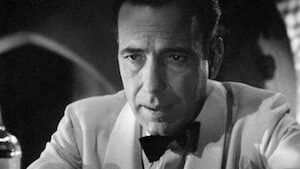
The famous line “Play it again, Sam” is a misquote from the movie Casablanca. The actual line spoken by Ingrid Bergman’s character, Ilsa Lund, is “Play it once, Sam. For old times’ sake,” and then she says, “Play it, Sam. Play ‘As Time Goes By'”. Humphrey Bogart’s character, Rick Blaine, doesn’t say “Play it again, Sam” at all, but he does say, “You played it for her, you can play it for me. If she can stand it, I can! Play it!”.
The misquote has become so popular that it’s widely recognized, even more so than the actual lines. The phrase “Play it again, Sam” was likely stitched together by pop culture and even inspired a Woody Allen movie title. Over time, the rephrased version became easier to remember, another example of how catchier lines often outlive the originals.
5. “I Can See Russia From My House” , Not Sarah Palin

This line exploded across the internet during the 2008 U.S. election, supposedly showing Sarah Palin’s simplistic take on foreign policy. But she never said According to Snopes, the quote actually comes from comedian Tina Fey impersonating Palin on Saturday Night Live. Palin’s real comment was, “They’re our next-door neighbors, and you can actually see Russia from land here in Alaska,” referring to the Diomede Islands. Still, the misquote stuck, becoming a pop culture punchline that blurred satire and reality, especially in the age of viral media.
6. “Money Is The Root of All Evil” – Not Quite the Bible

This phrase often gets thrown around in sermons and arguments about greed, but the actual Bible verse (1 Timothy 6:10) reads, “For the love of money is the root of all evil.” That little difference, the “love of”, shifts the meaning significantly. It’s not money itself that’s condemned, but the obsession with it. In other words, the Bible does not condemn money as inherently evil, but rather warns against an unhealthy attachment to it.
This means that the love of money, or the desire for wealth, can lead to various forms of evil and can cause people to stray from their faith. The misquote flattens the message, turning a complex idea about desire into a blanket condemnation of wealth. A subtle reminder to read the fine print, even in scripture.
7. “Beam Me Up, Scotty” – Not in Star Trek
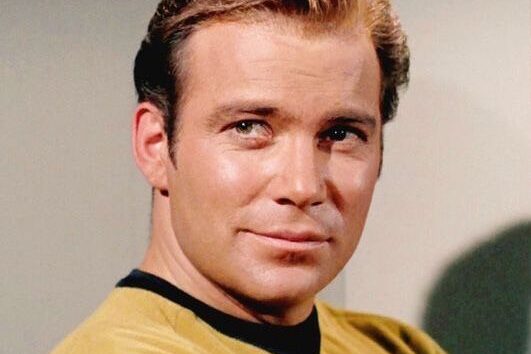
Ask a casual Star Trek fan and they’ll quote this line like gospel. But Captain Kirk never actually said “Beam me up, Scotty” in any original episode. The closest was variations like “Scotty, beam me up” or “Beam us up, Scotty.” The popularized version came later through fan parodies, bumper stickers, and T-shirts. Despite this, the quote has become a phrase of its own over time. It can be used to describe one’s desire to be elsewhere, technology such as teleportation, slang for certain drugs, or as a phrase to show appreciation and association with the television show.
8. “Luke, I Am Your Father” – Darth Vader Didn’t Say That

Arguably one of the most misquoted movie lines ever, this one’s a classic example of collective misremembering. In The Empire Strikes Back, Darth Vader actually says, “No, I am your father,” after Luke says, “He told me you killed him.” But somehow, “Luke, I am your father” became the staple impersonation line. The “Luke” version is a classic example of the “Mandela Effect,” where a false, yet believable, memory is shared by many. This misattribution has become so widespread that it’s often considered a popular culture phenomenon. Maybe it’s because starting with “Luke” adds context in conversations, or maybe we just wanted it to sound more theatrical.
9. “Winning Isn’t Everything, It’s The Only Thing” – Not Lombardi’s First

This phrase gets attributed to legendary Green Bay Packers coach Vince Lombardi, but the quote actually predates him. UCLA Bruins football coach Red Sanders is the original source, having said it in 1950. In fact, he is on record with at least two different versions of the quotation during his coaching career. Sanders is reputed to have used this quote even as far back as the 1930s. Lombardi did repeat the line and made it famous, but he also later expressed regret, saying it was misinterpreted and too extreme. Still, in the world of sports, it became a mantra, because even if you didn’t say it first, saying it loudest can make it yours.
10. “Houston, We Have a Problem” – Not the Actual Quote
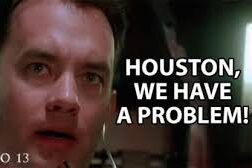
The 1995 film Apollo 13 used the slight misquotation “Houston, we have a problem” in its dramatization of the mission, since it had become the popularly expected phrase, but in reality, astronaut Jack Swigert said, “Okay, Houston, we’ve had a problem here.” Moments later, Jim Lovell repeated, “Houston, we’ve had a problem.” The shift from “had” to “have” made the line punchier for Hollywood. Director Ron Howard used the tweaked version in the 1995 film, and the rest is history, or Hollywood’s version of it, anyway.
11. “Walk Softly and Carry a Big Stick; You Will Go Far” – Roosevelt Didn’t Coin It
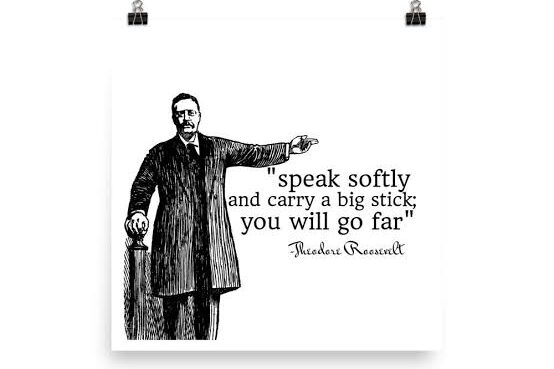
This phrase is closely tied to Theodore Roosevelt’s foreign policy approach, often credited to him. The American press during his time, as well as many modern historians today, used the term “big stick” to describe the foreign policy positions during his administration. But there’s no official record of him saying it in a speech. He did write it in a letter from 1900, citing it as a West African proverb. Still, no source for such a proverb has ever been found. Roosevelt made the phrase iconic through use, but he didn’t invent it, he just knew a good metaphor when he saw one.
12. “Curiosity Killed the Cat” – Not the Original Proverb
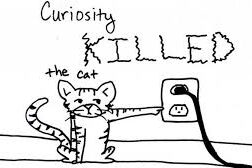
The proverb “Curiosity killed the cat” is actually a modern version of an older saying, “Care killed the cat”. The original phrase, used in the 1500s, warned that excessive worry or sorrow could be detrimental, much like the modern phrase “worrying yourself sick,”. The shift to “curiosity” in the later version highlights the idea that excessive questioning or investigation can also lead to trouble. The phrase only evolved into its current form in the early 20th century.
Now it’s used to scold nosiness, especially among kids and cats alike. Funny how a change in one word rewrote the whole moral of the story. Knowing the real stories behind these phrases doesn’t take away their impact, it just adds another layer to how culture, memory, and media keep rewriting history.
This story 12 Famous Quotes That Were Never Actually Said by Who You Think was first published on DailyFetch


